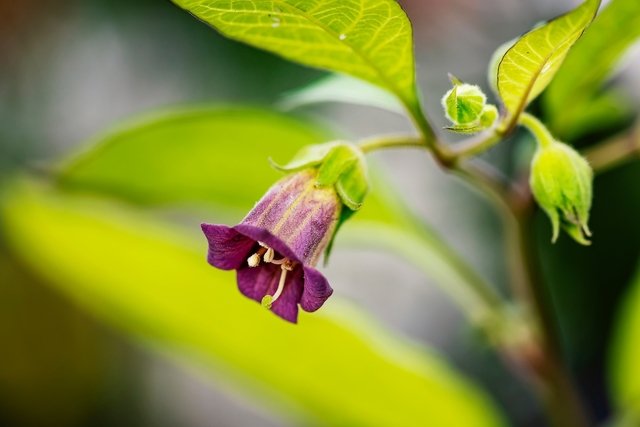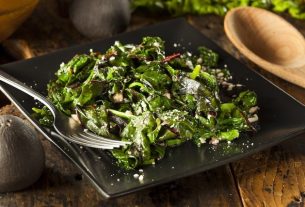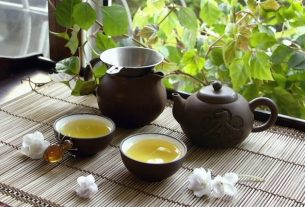Belladonna is an extremely toxic plant that can be used in the preparation of some natural medicines, especially to alleviate symptoms of gastric cramps due to ulcers or menstrual cramps. However, the plant should only be used by professionals, being poisonous when used without knowledge at home.
The scientific name of this plant is Atropa belladonnawhich is rich in alkaloids, such as atropine, scopolamine and hyoscyamine, with antispasmodic, sedative and diuretic properties, which are widely used to obtain medicines, but which can cause intoxication and alter the functions of the nervous system, the production of saliva and sweat, in addition to leading to increased pupil size, urinary retention, increased heart rate and blood pressure.
Belladonna can be purchased in compounding pharmacies, after presenting a medical prescription, and should only be used under the guidance of a doctor or other health professional who has experience with the use of medicinal plants, and stored out of the reach of children, because if consumed above the dose recommended by the doctor, it can be poisonous.

What is it for
Belladonna is indicated in traditional medicine for the following situations:
- Digestive problems;
- Gastric cramps due to peptic ulcer;
- Intestinal colic;
- Menstrual cramps or dysmenorrhea;
- Biliary pain;
- Renal colic;
- Neurological changes;
- Excessive sweating;
- Excessive nighttime urination;
- Diarrhea with intense cramps;
- Irritable bowel syndrome with intestinal spasms;
- Stiffness or tremors caused by Parkinson’s disease;
- Lung collapse due to pneumonia;
- Typhoid fever;
- Spasms in the bronchi caused by asthma or bronchitis.
Belladonna has antispasmodic properties that help relax the smooth muscles of the intestines, urinary and biliary tract, bronchi and uterus, for example, in addition to inhibiting the production of saliva, sweat, stomach acid secretion, and having a sedative and diuretic action.
Due to its properties and the presence of scopolamine and atropine in its composition, belladonna is widely used for the production of medicines, such as Atropion, Pasmodex, Buscopam, Atrovex or Tropinal, for example, eye drops, to dilate the pupil before examinations. vista, or homeopathic ointment for rheumatism or muscle pain, found under the name Pomada Belladonna Almeida Prado.
Belladonna should only be used with the advice and guidance of a doctor or herbalist, as it can cause poisoning and put life at risk.
How to use
Belladonna can be used in the form of a tincture, powder or extract. However, as it is an extremely toxic plant, doses must be administered individually, by a doctor or a professional with experience in medicinal plants.
Possible side effects
Side effects of belladonna include hallucinations, delirium, psychosis, restlessness, agitation, nausea, rapid heartbeat, blurred, blurred or blurred vision, blindness, gastrointestinal disturbances, headache, and difficulty or inability to urinate.
Furthermore, if consumed in excess, this plant can cause poisoning, heart collapse, respiratory arrest, convulsions, coma and death. Therefore, medicines made with this plant should be used with great care and only under the guidance of a doctor.
Who shouldn’t use
Belladonna is extremely poisonous, and none of its parts should be used in preparing home remedies, nor should hands be in direct contact with the plant, due to the risk of it being absorbed through the skin and causing poisoning.
Furthermore, you should not consume belladonna fruit as it can cause serious poisoning. Therefore, it is important to pay attention to children, as the nightshade fruit is very similar to blueberries and can be consumed by mistake and cause poisoning.
Medicines with this plant should not be used by people with rapid heartbeat, heart failure, thyrotoxicosis, angle-closure glaucoma, acute pulmonary edema, bladder or bowel obstruction, intestinal paralysis, severe ulcerative colitis, toxic megacolon, myasthenia gravis , acute hemorrhage, hiatus hernia, reflux esophagitis, severe liver and kidney disease, or prostate hyperplasia in men.
Furthermore, belladonna should never be used by children or pregnant or breastfeeding women.

Sign up for our newsletter and stay up to date with exclusive news
that can transform your routine!
Warning: Undefined array key "title" in /home/storelat/public_html/wp-content/plugins/link-whisper-premium/templates/frontend/related-posts.php on line 12
Warning: Undefined array key "title_tag" in /home/storelat/public_html/wp-content/plugins/link-whisper-premium/templates/frontend/related-posts.php on line 13



